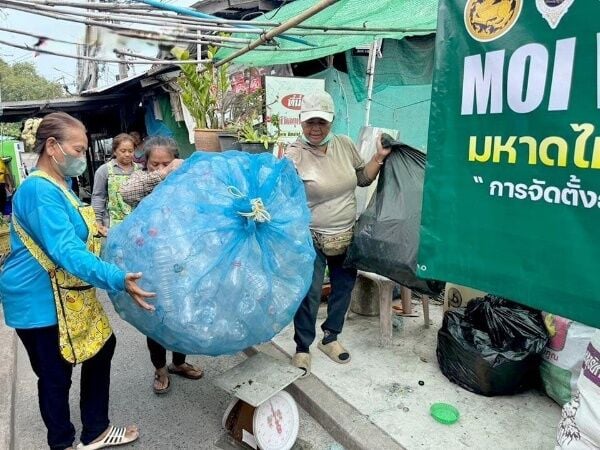Pattaya’s waste revolution: MOI Waste Bank Week

The MOI Waste Bank Week event held at Wat Chong Lom Temple Community in Pattaya signals the establishment of waste banks by local government bodies.
This eco-friendly drive, spurred by directives from the Chon Buri Provincial Administration, mandated the simultaneous launch of recyclable waste banks on January 1. Spearheaded by Pattaya’s Natural Resources and Environment Office on March 25, the event aimed to ensure strict adherence to waste management guidelines set forth by the Ministry of Interior.
Gathered at the event were an assembly of officials, waste bank managers, and conscientious residents. It served not only as a celebration but also as a heartfelt acknowledgement of the collaborative efforts poured into the implementation of waste banks across Pattaya.
With a united resolve to combat waste pollution, Pattaya stands as an example of proactive environmental stewardship, reported Pattaya Mail.
As the city continues to lead the charge towards a greener future, the MOI Waste Bank Week heralds a new era of sustainability and community-driven change.
In related news, to combat the Thai capital’s mounting garbage crisis, the Bangkok Metropolitan Administration (BMA) is rolling out two cutting-edge waste-to-energy plants to revolutionise waste management by 2026. BMA permanent secretary Wanthanee Wattana voiced unwavering confidence in the timely completion of these game-changing facilities.
Wattana revealed that construction is well underway at the Nong Khaem and On Nut garbage disposal centres, with Privy Councillor Palakorn Suwanrath spearheading the ceremonial groundwork for one of these eco-innovative power plants on March 12.
In other news, in a groundbreaking discovery that could change the game for sustainability, a team of scientists from King Mongkut’s University of Technology Thonburi (KMUTT) unlocked the secret to transforming food leftovers into a fuel rivalling low-grade coal.
A team of researchers from KMUTT led by Dr Trairat Muangthong-on has devised a pioneering technique for converting two types of food waste into a fuel comparable to low-grade coal, heralding a new era of sustainability.
Latest Thailand News
Follow The Thaiger on Google News:


























